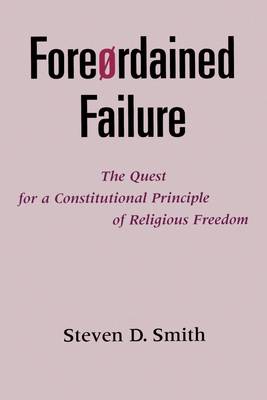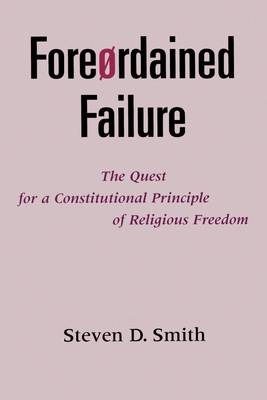
- Afhalen na 1 uur in een winkel met voorraad
- Gratis thuislevering in België vanaf € 30
- Ruim aanbod met 7 miljoen producten
- Afhalen na 1 uur in een winkel met voorraad
- Gratis thuislevering in België vanaf € 30
- Ruim aanbod met 7 miljoen producten
Zoeken
€ 123,95
+ 247 punten
Omschrijving
Ever since the Supreme Court began enforcing the First Amendment's religion clauses in the 1940s, courts and scholars have tried to distill the meaning of those clauses into a useable principle of religious freedom. In this highly original work, Smith criticizes the main positions in the debate and explains their misconceptions. He argues that efforts to find a principle of religious freedom in the "original meaning" are fruitless because the clauses were purely jurisdictional in nature: they were meant to place authority over questions of religion with the states, and nothing more. Contending that the perennial quest to distill religious freedom into a "principle," is futile, Smith advocates a fundamental reassessment of the premises upon which courts have proceeded in this area.
Specificaties
Betrokkenen
- Auteur(s):
- Uitgeverij:
Inhoud
- Aantal bladzijden:
- 192
- Taal:
- Engels
- Reeks:
Eigenschappen
- Productcode (EAN):
- 9780195132489
- Verschijningsdatum:
- 22/04/1999
- Uitvoering:
- Paperback
- Formaat:
- Trade paperback (VS)
- Afmetingen:
- 154 mm x 229 mm
- Gewicht:
- 290 g

Alleen bij Standaard Boekhandel
+ 247 punten op je klantenkaart van Standaard Boekhandel
Beoordelingen
We publiceren alleen reviews die voldoen aan de voorwaarden voor reviews. Bekijk onze voorwaarden voor reviews.











